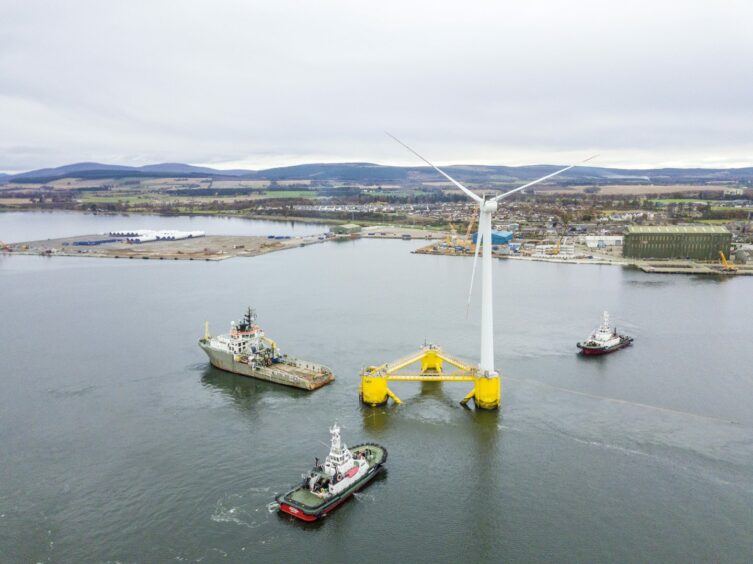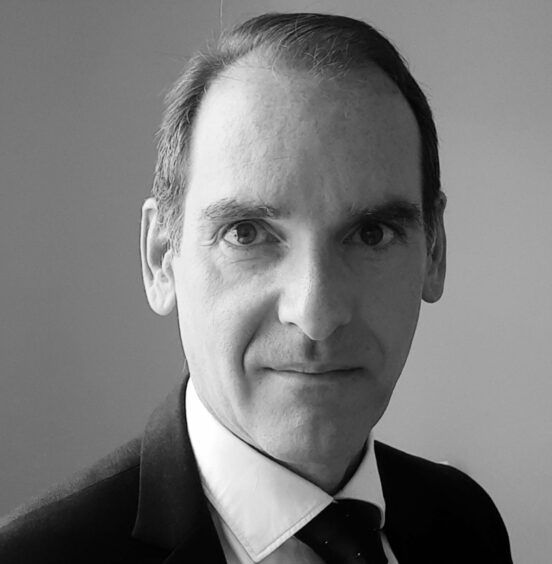
Innovators have an eye on what problem it is they are trying to solve, but often need someone to help move a concept into execution and scale.
Blue Pelican Capital, founded in 2021, aims to play just such a role. Industries need to fill gaps, and innovators need use cases, founding partner Jerome de Richemont noted. “In the middle, they need someone to bring together the pieces of the puzzle.”
De Richemont formerly worked for Subsea 7 and the appeal of the offshore has not gone away. “We are convinced the ocean will play a major role in changing the energy mix,” he continued. This helps narrow the field of companies that Blue Pelican will work with.
The team has an idea of what problems it wants to solve, then finds the ideas that would be a strategic fit.
“Our objective with Blue Pelican is to accelerate the access to market for clean technology applied to the maritime industry,” de Richemont said.
Wind ways
One area of particular interest is floating wind. While traditional offshore wind turbines offer less scope for innovation, floating facilities have much further to go.
The supply chain must innovate to achieve the projected 15 GW of floating wind on the cards for 2030.
“It means more than 1,000 platforms, thousands of tonnes of concrete and steel,” he said. “We don’t have the capacity at yards to build these platforms, we don’t have installation vessel capacity. But small improvements can be made to find the gaps and the bottlenecks.”
One such bottleneck is how to integrate such new sources of electricity into the grid. “We are supporting a Dutch company, Flasc, which is working on a plan to co-locate storage with the source,” de Richemont said.
The company has a plan to store energy by pumping water into a closed chamber. To export power, the water is released and the air drives the turbines.
Flasc’s storage would be on site with the offshore wind project, which avoids onshore permitting challenges.
“We can help them with the technology and a partnership with Subsea 7 delivers the storage, which is basically a bundle of pipes.”
Filling the gaps
The challenge for innovation is not of finding cash, the Blue Pelican founder said. The need is for a partner that can bring the missing pieces of the puzzle.
“Investment funds are the best placed to provide cash. Corporates can bring expertise to build out plans. Government backing helps in providing scalable framework, such as long-term agreement on pricing, which gives credibility to a business,” de Richemont said.
“Money is not the difficult part, it’s finding the right partner.” Blue Pelican does sometimes take equity in companies with which it works.
Other challenges the Blue Pelican team is looking at are around bottlenecks in construction yards. The investment fund is in talks with a civil works company on working together on a means to build platforms onsite, rather than at the quay.
Such a move “can save months in the development” of the wind farm, de Richemont said, accelerate payback. Furthermore, using concrete rather than steel is cheaper and can host larger turbines.
De Richemont will be talking at the upcoming Innovate Energies Summit, on February 23 at the Tobacco Dock, in London.
Recommended for you


 © Supplied by Blue Pelican Capital
© Supplied by Blue Pelican Capital